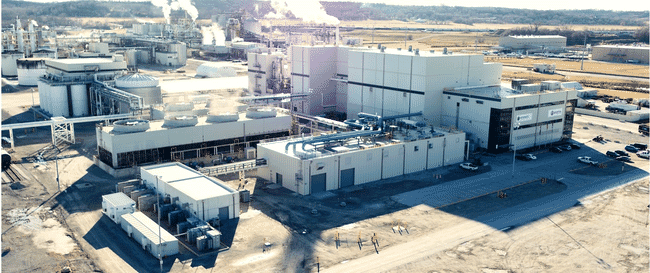
© Veramaris
Veramaris, a company focused on natural algal oil for alternative omega-3 sources, has for the first time announced a scope 3 greenhouse gas (GHG) reduction target to reduce absolute scope 3 emissions by 22.5 percent by 2030, compared to a 2021 baseline, further building on the company’s climate commitments. Scope 3 GHG emissions are the largest proportion of emissions in the aquaculture value chain.
Commitment to reducing GHGs
The new commitment comes after Veramaris registered a 27 percent lower product carbon footprint in an updated environmental product declaration shared with its customers.
"We know how important it is for our customers to reduce the carbon footprint of the value chain, and we're pleased to be improving our climate commitments. We’ll continue to take action as the demand for sustainably produced alternative ingredients in the aquafeed industry continues to surge,” said Veramaris CEO Gertjan de Koning in a press release.
In August 2022, Veramaris set a science-based target, which was approved by the Science Based Target initiative (SBTi), with the aim of demonstrating their commitment to reduce GHG emissions. This decision came from the company's aim at helping to urgently limit global warming to below 1.5°C. They state that their new scope 3 target strengthens their commitments.
Focus on operations
The company has said it has focused efforts on decarbonising its operations, building on SBTi targets. The resulting emphasis on both technical and operational improvements, coupled with increasing productivity and capacity utilisation, they say, have all contributed to quickly reducing the product carbon footprint.
“To best enable the sustainable growth of aquaculture, we’re actively reducing emissions through tangible actions. From implementing more energy efficient facilities to supporting regenerative agriculture practices in our corn sugar supply chain, every step we make is a deliberate move to cut our footprint,” said Joanne Pedall, general manager of the Veramaris production facility in Blair, Nebraska.




